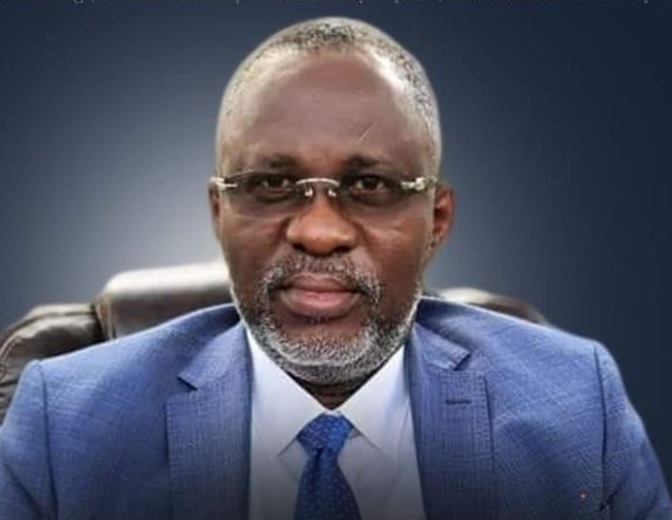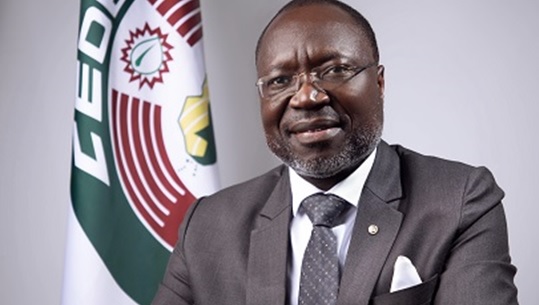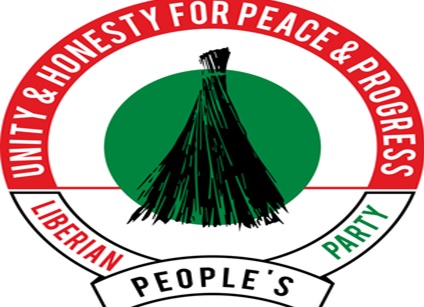MONROVIA – In a surprising turn of events, Senator Nathaniel F. McGill, through his legal team, has filed for a writ of prohibition against the Liberia Anti-Corruption Commission (LACC), aiming to halt any ongoing investigation into his actions during his tenure as Minister of State for Presidential Affairs under the former ruling Coalition for Democratic Change (CDC). McGill’s legal maneuver argues that he acted under the direct orders of former President George Weah, asserting that this grants him immunity from prosecution or investigation.
Senator McGill has petitioned the Supreme Court to issue an alternative writ of prohibition, seeking to restrain and prohibit the LACC from continuing its investigation into an alleged “Supplementary Payroll” scandal that occurred during his tenure. The petition argues that as Minister of State, McGill was appointed and served under the authority granted by Revised Code 12, subsection 2.1, which outlines the duties and powers of the Minister of State for Presidential Affairs, a role described as the President’s principal assistant.
The petition further contends that the Ministry of Justice, as the official legal arm and advisor to the government, should have a thorough understanding of the constitutional powers and immunities associated with the office of the President. It argues that the Ministry should ensure all governmental actions respect the “sanctity and sanity” of the presidential office and refrain from engaging in any activities that could demean it.
The LACC’s investigation, which began with an invitation to McGill on August 20, 2024, seeks to uncover the truth behind allegations of payroll padding and administrative malpractice within the Ministry of State for Presidential Affairs. According to the LACC, a Supplementary Payroll containing 728 names was created outside the standard framework of the Civil Service Agency (CSA) during McGill’s tenure, raising serious concerns about corruption and financial misconduct.
In a formal letter dated August 16, 2024, the LACC invited McGill to provide critical information and relevant documentation to assist in the investigation. The letter, signed by Program Manager for Monitoring and Investigation Baba M. Borkai and approved by Oversight Commissioner Rev. Randolph Tebbs, emphasized the Commission’s intent to understand McGill’s role in the creation and management of the Supplementary Payroll, which is alleged to have been marred by significant irregularities.
“The Liberia Anti-Corruption Commission (LACC) presents its compliments and informs you that it has initiated an investigation into allegations of Payroll Padding and acts of corruption resulting from salary payments affecting a Supplementary Payroll containing 728 names at the Ministry of State for Presidential Affairs, which was allegedly created outside of the framework of the Civil Service Agency (CSA). Details of the allegations reveal that the Supplementary Payroll was allegedly created under your instruction when you served as Minister of the Ministry of State. Accordingly, the process was marred by irregularities amounting to payroll padding, administrative malpractice, and acts of corruption, among others,” the letter stated.
Senator McGill has publicly responded to the LACC’s invitation, framing the investigation as a politically motivated attack designed to silence his opposition to the current administration’s governance. Despite his legal challenge, McGill expressed his commitment to transparency and accountability, indicating his willingness to comply with the LACC’s requests while continuing to assert his innocence.
This legal battle marks a significant moment in Liberia’s ongoing efforts to combat corruption, as it raises critical questions about the balance between executive authority and accountability. The Supreme Court’s response to McGill’s petition will likely set a precedent for how former officials of the CDC government are held accountable for their actions, as well as how current investigations are conducted amidst claims of political bias.
As the case unfolds, all eyes are on the judiciary to see whether it will uphold the LACC’s mandate to investigate corruption without fear or favor or if it will side with McGill’s claim of immunity based on executive privilege. The outcome could have far-reaching implications for Liberia’s fight against corruption and the broader quest for good governance and rule of law.







